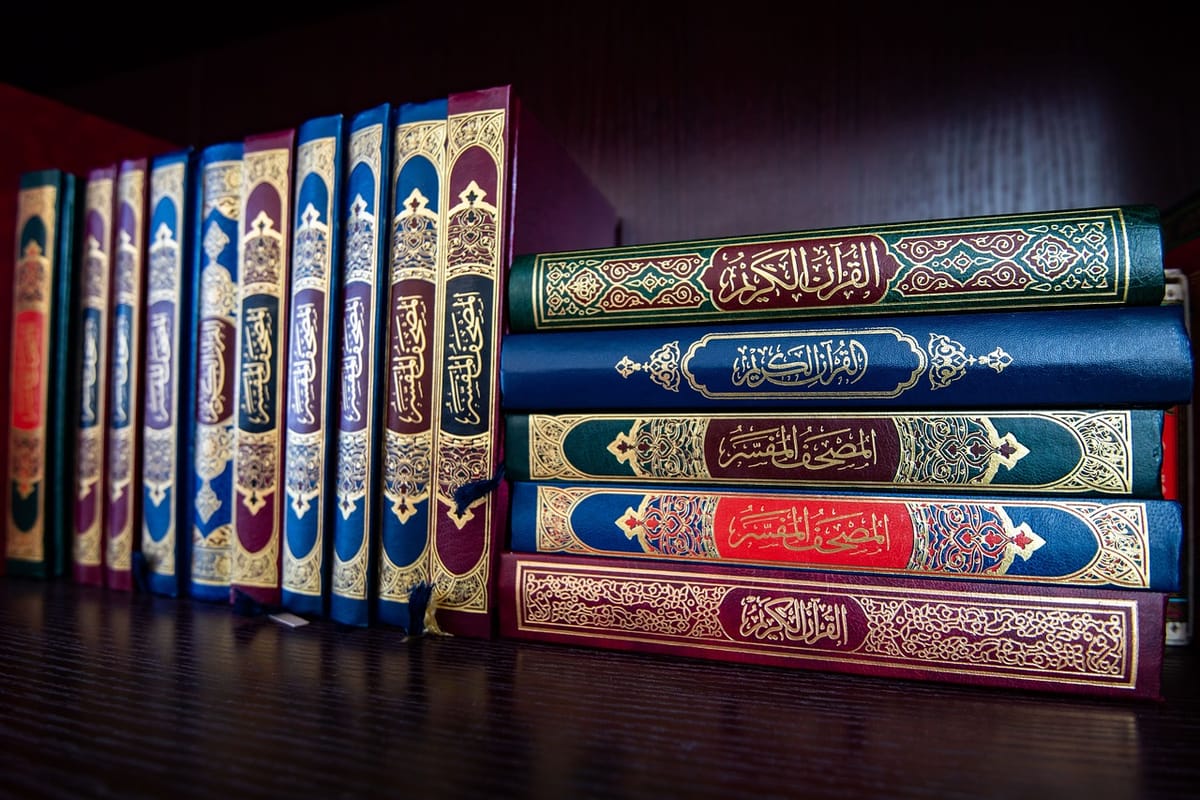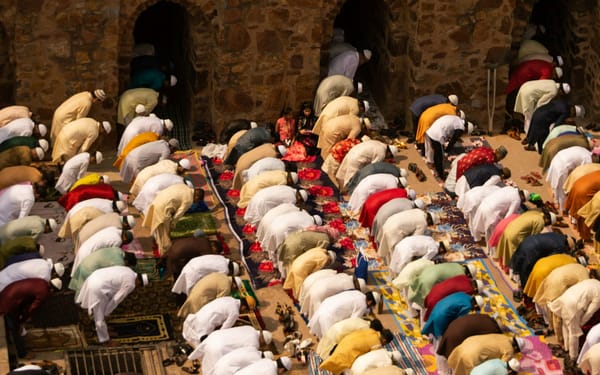The Importance of The Hadith in Islam

Many people understand that they need to read the Quran. However, have you ever thought of the Hadith? The Hadith is important in understanding the Quran. Without the Hadith, the Qu'ran makes little sense. They're second to the Quran in the order of significance. So, let's see the importance of the Hadith in Islam.
The Hadith holds paramount importance and is a collection of the Prophet Muhammad's (PBUH) sayings, actions, and approvals. It complements the Quran and expatiates the verses with practical examples.
What is the Hadith?
The Hadith refers to the actions, traditions, and actions of the Prophet. Knowing that the Hadith spans a broad spectrum of teaching, covering topics from legal principles to rituals, ethics, and theology, is essential.
The collection of the Hadith started during the life of the Prophet (PBUH) when his companions observed his actions and recorded and transmitted his words. Since then, the Hadith has been compiled and organized, becoming a timeless version that guides the Muslim Ummah.
Classification of the Hadith
When several individuals began the collection of the narrations, it became necessary to find a way to distinguish the true reports from the false ones.
Hadith classification is an intelligent method involving strict adherence to the rules accumulated over centuries. There are numerous ways to classify Hadith, and the most well-known way is to classify according to the reliability and memory of the reporters.
The method involves classification into:
- Saheeh (Sound)
- Hasan (good)
- Daeef (weak)
- Mawdu (forged or fabricated)
1. Saheeh
Saheeh hadith are the most reliable and authentic. According to a Hadith scholar, a saheeh Hadith is made up of information from reporters with reliable memories and doesn't have any irregularities.
2. Hasan
Hasan means good in Islam, and a Hassan Hadith is described as a degree less than Saheeh Hadith. It's also free of irregularities, but one of the reporters may have a less trustworthy memory, or the Hadith may not meet the rules of the saheeh classification.
3. Daeef
Any Hadith that doesn't meet Hasan's status is called Daeef. The weakness comes from the reporter(s) having a character defect. The person might be known as a liar, make exaggerated mistakes, or have an ambiguous character.
4. Mawdu
Mawdu Hadith is fabricated or forged. A few reasons why some Hadith are fabricated include political issues, proverbs transforming into Hadith, deliberately misleading the propaganda, storytellers fabricating it, etc.
The Quran and The Hadith
The Quran is Islam's holy book and is considered God's wordings revealed to the Prophet (PBUH) for over 23 years. It's the ultimate guidance for Muslims, providing solutions to afflictions and principles.
The Hadith is the practical application of what is in the Quran. It provides a detailed explanation and insights into how to apply these teachings as a Muslim.
Importance of Hadith in Islam
1. Shari'a
The main importance of Hadith in Islam is deriving the Shariah from it. The Shariah, also called Islamic Jurisprudence, comes from the Hadith and the Quran.
It contains a detailed legal framework encompassing various parts of a Muslim's life, including family matters, worship, lifestyle, criminal justice, etc. The Hadith, therefore, plays a significant role in providing guidelines for these areas.
The Hadith also forms the bedrock of the essential components of the Shariah - Ijma (consensus) and Qiyas (analogy). Ijma is the agreement of Islamic scholars on a legal issue, and it's established by referring to authentic Hadith. At the same time, Qiyas involve drawing analogies from existing rulings in the Hadith to solve new or similar issues.
2. Stronger connection with Allah
Hadith in Islam helps Muslims to develop a stronger connection with their connection. It offers a touching spiritual experience and an opportunity to deepen your relationship with the Almighty. Moreover, reading the Hadith and the Quran, you understand what Allah tells you better.
3. Virtuous Behavior
The Hadith is a collection of the Prophet's exemplary actions. His actions and characters are worthy of emulation. You can turn to the Hadith to learn more about how to lead a virtuous life. Also, it covers many topics like forgiveness, compassion, honesty, kindness, etc.
4. Patience and perseverance
One of the many virtues of a Muslim is patience. The Hadith narrates how deep the Prophet's (PBUH) patience ran in the face of afflictions. Hence, these stories will inspire you to emulate the better qualities and implement them for better living.
5. Understanding of the Holy Verses
The Hadith is needed to understand the verses of the Quran. Some verses might need to give more in-depth information on the practicals of performing acts of worship. For instance, the Hadith provides more details on pilgrimage rituals, how to perform Solah, how to give charity, etc.
Final Thoughts
The Quran and the Hadith are essential aspects of any Muslim's life. They serve as guidance and provide the correct principles needed to live. Many might not understand the need for the Hadith even though its significance is second to the Quran. However, we've explored a few of the importance of the Hadith in Islam in this section. You should check it out and learn more.





